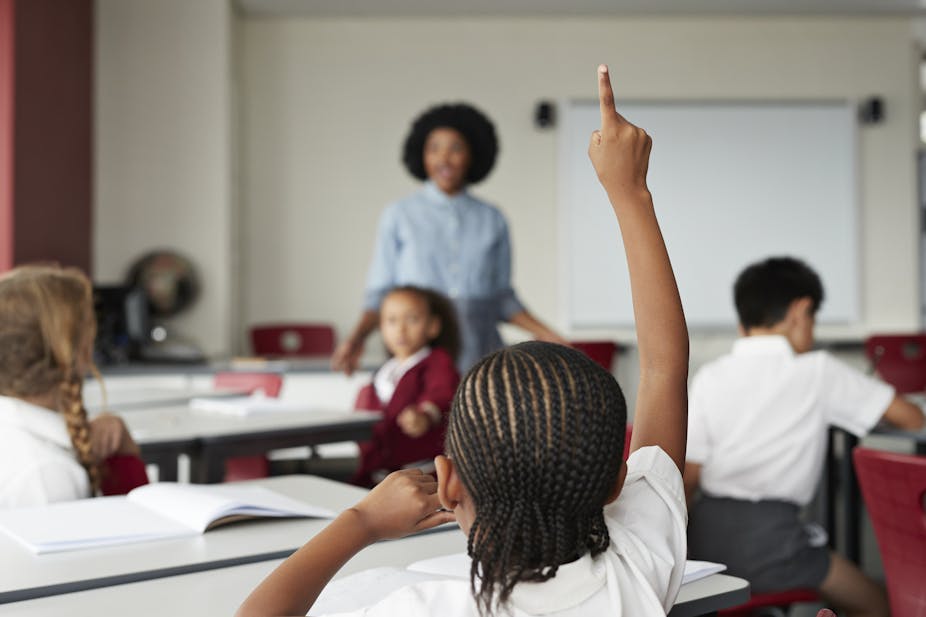The fact that children have rights and should be taken seriously as individuals is not just an abstract idea; it is a recognition of them as full members of society. It should guide the way adults view children and deal with matters affecting them. And, in a case relating to a school’s contract with parents, South Africa’s Constitutional Court has recently made it clear where the law stands on this.
The country’s constitution is consistent with international agreements on children’s rights. The United Nations Convention on the Rights of the Child in 1989 established the recognition of children as holders of rights and not just mini-humans with rights held in trust for them by adults. A year later in 1990, the African Charter on the Rights and Welfare of the Child was adopted to complement the UN convention. It included provisions that address matters affecting children in Africa.
The convention and the charter both recognise four principles as “fundamental” for the interpretation and application of all children’s rights. They are:
-
Non-discrimination/equality
The best interests of the child
The right to life, survival and development
The right to be heard
The equality principle guarantees rights to children without discrimination on any basis such as age, gender or ethnicity. It also protects children from discrimination based on the status of adults in the child’s life.
The principle of the best interests of the child aims to guide all actions concerning children. Where a matter concerns a child, the child’s best interests should take precedence over those of others concerned. Matters could include divorce proceedings or putting a child into care.
The right to life for children extends beyond the right to not be killed. It includes the provision of the socio-economic elements to enable the child to develop and thrive to the fullest potential. The right to life, survival and development therefore includes education and health, among others.
The participation principle is about recognising the child as a distinct individual. It includes the right of the child to freely express views and have those views respected and considered in any matter affecting him or her. Determining what is in the child’s best interests would be incomplete without at least hearing from the child. But participation doesn’t mean an automatic endorsement of the child’s views. It gives due weight to the child’s age, maturity and capacity.
Of these four principles, the best interests of the child is often the most controversial, due to its indeterminacy, vagueness or subjectivity. It’s often difficult to agree on what the best interest is. But this flexibility makes it a useful tool to adapt to each specific case.
This is demonstrated by the decision of the South African Constitutional Court in the AB and Another v Pridwin Preparatory School and Others case.
The court ruling
On 17 June 2020, the Constitutional Court declared unconstitutional a clause in a private school’s contract with parents. The clause allowed the school, at any time, to terminate the contract between the school and the parents of the pupils. The unconstitutionality related to the rights of children enshrined in sections 28(2) and 29(1)(a) of the constitution: the best interests of the child and the right to education.
Relations between the parents of two children at the school and the staff soured over the conduct of the parents – particularly during sporting events. The headmaster decided to end the contract with the parents, which meant the children had to leave the school.
The court held that the views of the children ought to have been heard and their best interests should have been considered before a decision was made that would have the effect of limiting their right to education. The children should have been allowed to make representations to the school (and to the courts) about the decision to have them expelled and about the impact the expulsion would have on them.
The implications
Children hold rights in the present, not only in the future (when they become adults). It is in the interest of children and society at large to create an environment that nurtures the dignity of children. The future depends on deliberately advancing this idea rather than expecting that it will happen automatically.
It’s significant that the decision of the constitutional court was also welcomed by private schools. They now understand the need to draw up contracts that uphold the values of the constitution. Respect for the principle of the best interests of the child is not limited to public institutions only.
Similarly, the child’s right to be heard applies to private actors too, including independent schools. The court provided certainty on this, creating an important milestone in South African jurisprudence.
Of all the parties concerned in this case, none were as directly affected as the children. Yet they weren’t initially heard – even though they were said to be “model pupils” who hadn’t done anything wrong.
The decision in this case therefore brings into sharp focus the need to uphold the principles of child participation and the best interests of the child in all matters concerning children, along with the other core principles of children’s rights – equality and life, survival and development.

